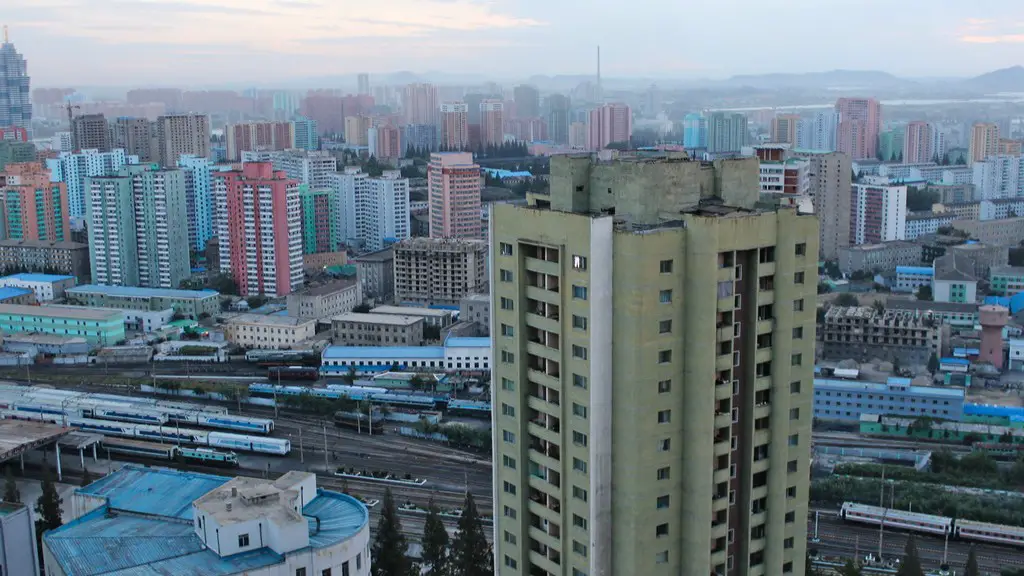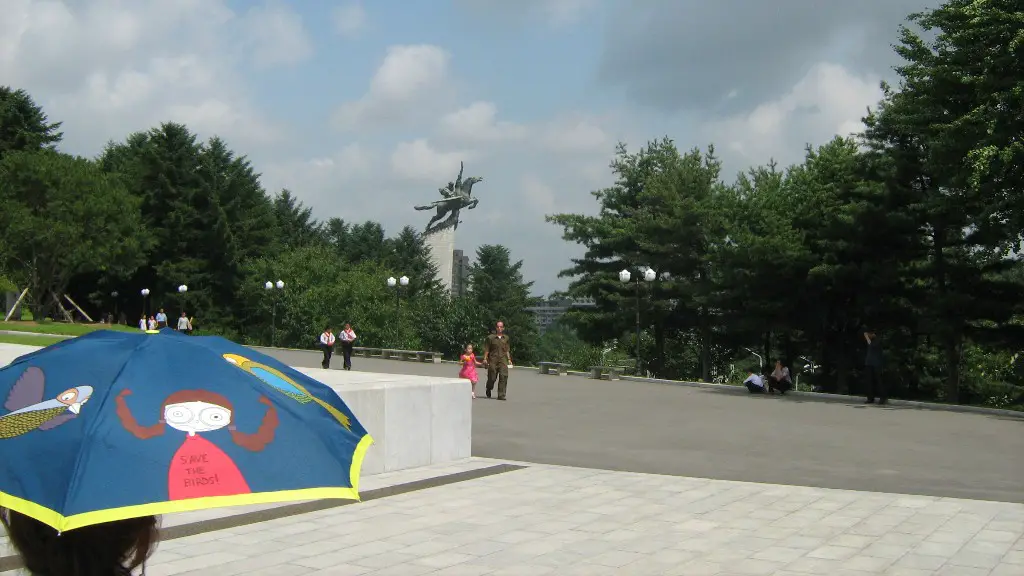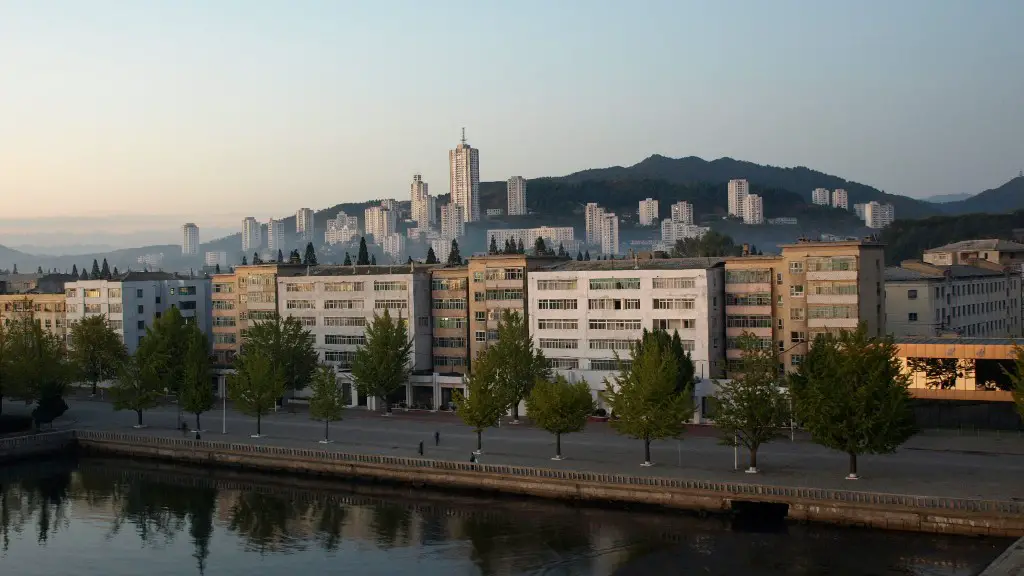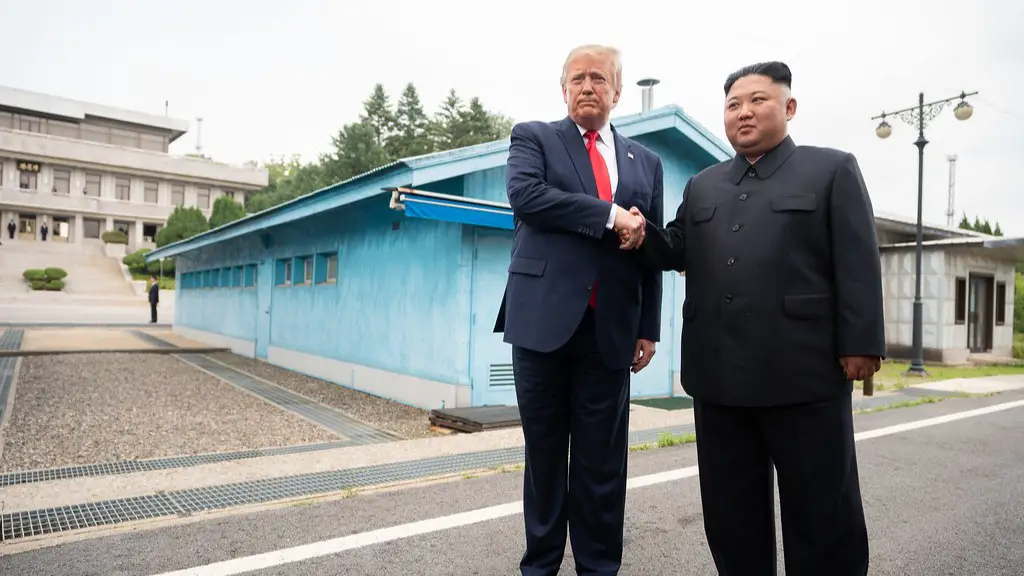To many, the concept of war between two states is hard to fathom, yet the threat of military confrontation has been on the lips of many for years as it relates to the United States and North Korea. From the rhetoric of the two states to the various international sanctions implemented against North Korea, relations between the two countries remain tense. Therefore, understanding why there is no war between the two is important in order to comprehend the dynamics of international diplomacy.
The origin of the United States and North Korea’s war of words goes back to 1950 when North Korean forces invaded South Korea. This sparked a three year war between the United States and North Korea as well as its allies, China and the Soviet Union, on one side and a United Nations coalition led by the United States on the other. The war ended in an armistice agreement in 1953, meaning that both sides agreed to a ceasefire and a peace treaty was never signed.
Since then, relations have remained rather icy, yet the United States has more recently been successful in applying pressure through punitive actions such as economic sanctions. These have taken the form of sanctions on North Korean exports as well as a global ban on products produced in forced labor camps. This has been seen by international observers as a positive step in defusing the tensions, as it prevents the North Korean economy from greatly expanding.
Experts suggest that the sanctions are the main reason why the United States and North Korea have not gone to war. International sanctions have been effective at limiting North Korea’s ability to fund its military activities, as well as limiting their capacity to launch large scale attacks. This has resulted in North Korea choosing to focus its attention on smaller, localized skirmishes which have not had any global implications.
In addition, there is the possibility of a diplomatic solution to the tension between the two nations. While North Korea’s leader, Kim Jong Un, has been less than accommodating, there are ongoing negotiations between the US and North Korea to discuss denuclearization. While progress is slow, optimism is growing that these talks could bring about a breakthrough in the long-running dispute.
Finally, there is the possibility of backlash against the United States should it choose to go to war with North Korea. Not only would the entire world likely be against the idea, but it would also likely have a negative impact on the US economy. This could range from a potential financial crash to a decrease in the US dollar’s value. For these reasons, it is highly unlikely that the US would choose to move forward with military action against North Korea.
Geopolitics
Geopolitics also plays an important role in US-North Korea relations. As North Korea is surrounded by some of the United States’ major allies—South Korea, Japan, and China—it can be assumed that any military action against the country would result in a major rift in the global power structure. There is also the risk of a nuclear conflict should any conflict between the two countries occur, something that is a major concern for leaders of both nations.
Furthermore, North Korea has increasingly become a factor in international politics as well. As the United Nations brought about a resolution condemning North Korea for its human rights violations, any attack by the United States could be seen as an act of aggression. This would undermine American credibility as well as any efforts to improve nuclear proliferation or human rights in the region.
In addition, North Korea has staunch allies in Russia and China. Russia and China have provided the North Korean government with aid and assistance and would likely take an offense to any US aggression against their ally. These countries have the potential to create a unified front against the US, further complicating any potential military actions.
Finally, North Korea is trying to make inroads with the Western world. This is evidenced by Kim Jong Un’s recent meetings with US President Donald Trump, as well as recent diplomacy between North Korea and South Korea. North Korea is also trying to boost its economy through the 2018 Winter Olympics, offering hope that the two countries could eventually live in peace.
International Organizations
International organizations such as the United Nations have also had a role in stopping the US and North Korea from going to war. The United Nations has passed various resolutions condemning North Korea for its human rights abuses and also added more sanctions against them. These actions have made it harder for North Korea to gain access to the international market, limiting their financial resources.
In addition, the United Nations has continued its efforts to promote dialogue between the United States and North Korea. These efforts have helped to create an atmosphere where war is less likely, as the two sides are compelled to negotiate and are open to the possibility of finding a diplomatic solution.
Other international organizations such as the European Union and the Association of Southeast Asian Nations have also played a part in keeping the peace. These organizations have offered various forms of diplomatic assistance and have been vocal in their opposition to war. This has created an international climate where it is difficult to pursue a military solution to the dispute.
Role of China
The role of China in the US-North Korea relations is not to be underestimated. As North Korea’s closest ally and its largest trading partner, China has been providing the isolated nation with both economic and diplomatic support. China has repeatedly used its influence to stop the United States from taking a military stance against North Korea.
Aside from trade, China has also provided North Korea with diplomatic protection. China has been opposed to any US military options against North Korea, even threatening to facilitate North Korea’s nuclear program if Washington chooses to move forward with any military actions.
Furthermore, China has helped in the diplomatic efforts to bring about peace between the United States and North Korea. They have been a major mediator between the two countries, encouraging negotiations and dialogue. This has been a major contribution to preventing war from occurring between the two countries.
Role of the Media
The media has also played a large role in the US-North Korea relations, and in preventing a war from happening. By keeping the public informed of the current situation, the media has helped to reduce fears of an imminent conflict. By providing facts and analysis, the media can help people understand the issues better, as well as offer potential solutions.
In addition, the media can influence public opinion. This can have an effect on the way officials in Washington and Pyongyang view the situation, and can give insight into the opinions and perspectives of the public. By influencing public opinion, the media can create an environment where war is not seen as a viable option.
Finally, the media can also be used to spread awareness about the humanitarian crisis occurring in North Korea. By raising awareness about human rights violations, the media can create an environment where sympathy for North Korea is increased, encouraging peace.




